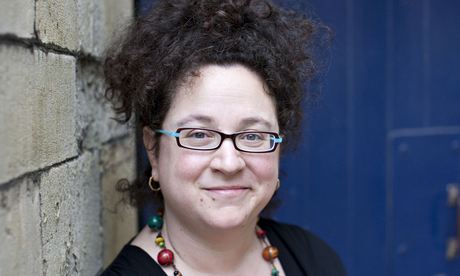
Sophie Hannah's talents are unusual: she is a bestselling crime writer (author of nine novels) and prize-winning poet (her fifth collection, Pessimism for Beginners, was shortlisted for the TS Eliot award). Her poetry is studied by GCSE, A-level and university students. And all her writing is characterised by a zestful intelligence. Her new crime novel The Telling Error explores the psychology of an erring middle-class mother without diluting a bold plot about the stabbing of a newspaper columnist. It is a novel in which hi-tech and low behaviour collide. She has also just edited The Poetry of Sex for Penguin – the sort of idea that, in the wrong hands, could be a fiasco; with Hannah at the helm, it's a triumph.
How far apart are crime writing and poetry?
I have been interested in both equally all my life. All through childhood I wrote verses and mysteries. There is, for me, one connection: structure. My poetry is metrical, rhyming. My crime novels are highly structured. I never start out with a dead body. I start with an impossible scenario. Opening questions should be mysterious, weird, intriguing and contain the seeds of the solution. The structure has to be meticulous – I'm a structure freak.
When and how did you become a crime writer?
I had the idea for my first crime novel, Little Face, in 2002, the day after my first baby, Phoebe, was born. When she was six months, we went to Crete where I wrote the synopsis: a woman goes out leaving her baby with her husband. On her return, there is a baby in the house and it is wearing her daughter's babygro, but it is not her baby.
You write in The Telling Error about the importance of secrecy – is writing your secret life?
Yes. The reason I've always written is precisely that. My life does not allow for a lot of the things that are most important to me. Writing is like a whole other world in which I can make what I want to happen happen.
You are very good at titles. How important are they?
Incredibly important. The ones I like best say: I am an unusual crime novel, read me. One of my all-time favourites is A Dark-Adapted Eye by Barbara Vine.
The Telling Error is full of portraits of marriages – why?
I am fascinated by romantic relationships. Part of the research for the book was me banging on at people asking: is it possible to fall in love at first sight with someone who looks ordinary? Everyone said something different.
Editing the Poetry of Sex, was it difficult tracking good poems down?
No, although I had worried it might be. I had thought: yikes. But then it was surprising how many poems turned out to be about sex when you actually looked.
Where did you grow up?
In Manchester. My father was an academic [Norman Geras], my mother [Adèle Geras] wrote children's fiction.
Why did you choose to live in Cambridge?
I am a fellow commoner at Lucy Cavendish College. My husband used to be a lecturer at Leeds University and we lived in Yorkshire for 11 years. When he gave up his job, we realised we could live wherever we liked. Cambridge is heaven, I am convinced it is the nicest place in the world to live. As you walk round, most people look incredibly bright, as if they are probably off to win a Nobel prize. And most people are not from Cambridge, they have chosen to be here, so it makes for a more oxygenated pool of people.
And speaking of oxygenated pools, I've heard you are a keen swimmer?
I am obsessive. I wanted to convert the basement here into a pool, but my husband says the house would fall down.
What is next?
I've just finished the first Hercule Poirot novel since Agatha Christie's death, with full approval of her family and the estate. She wrote intellectual puzzles that are also easy reads – I can't think of any other writer who taxes the reader so pleasurably. I think she is a genius.

